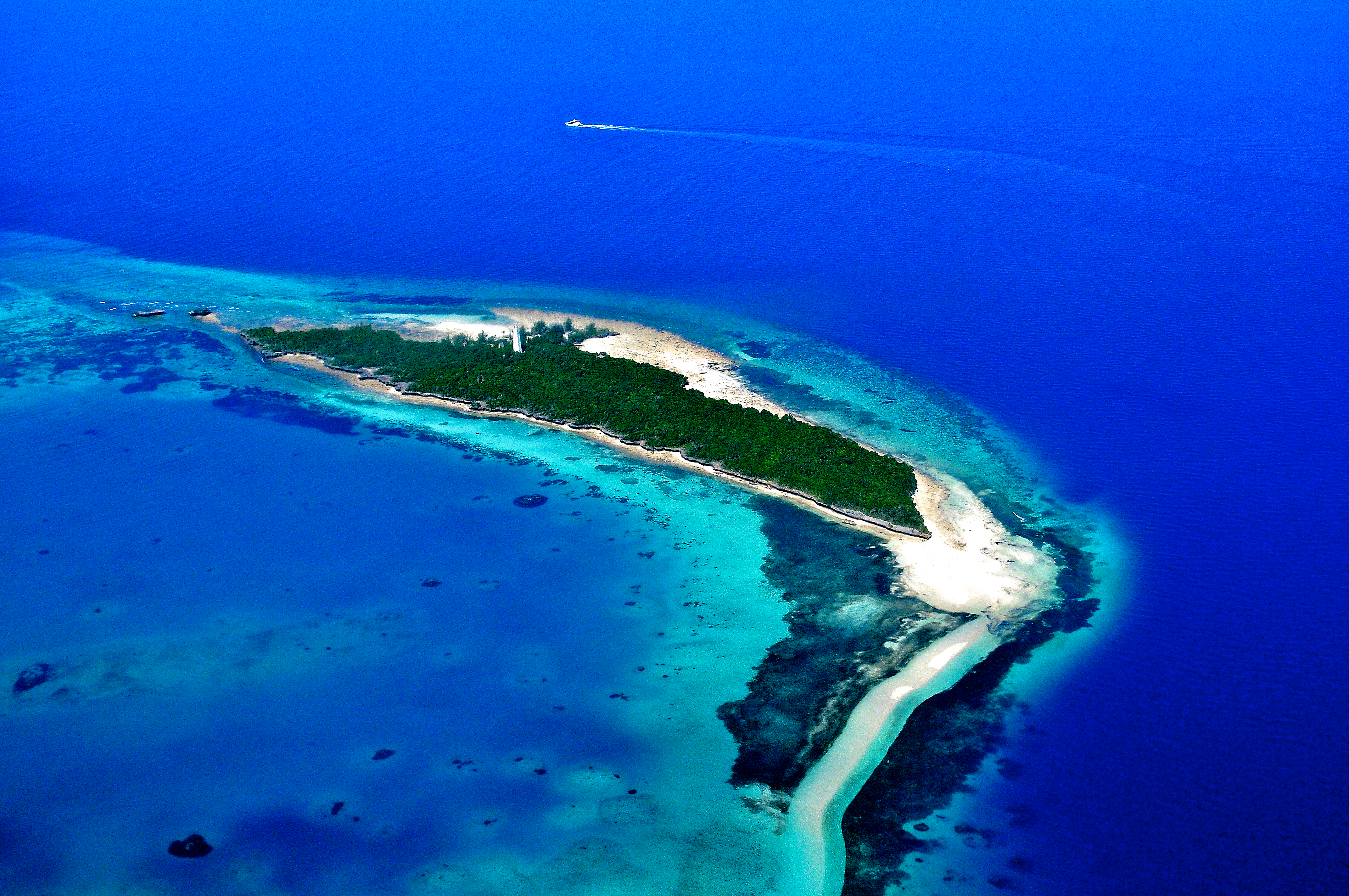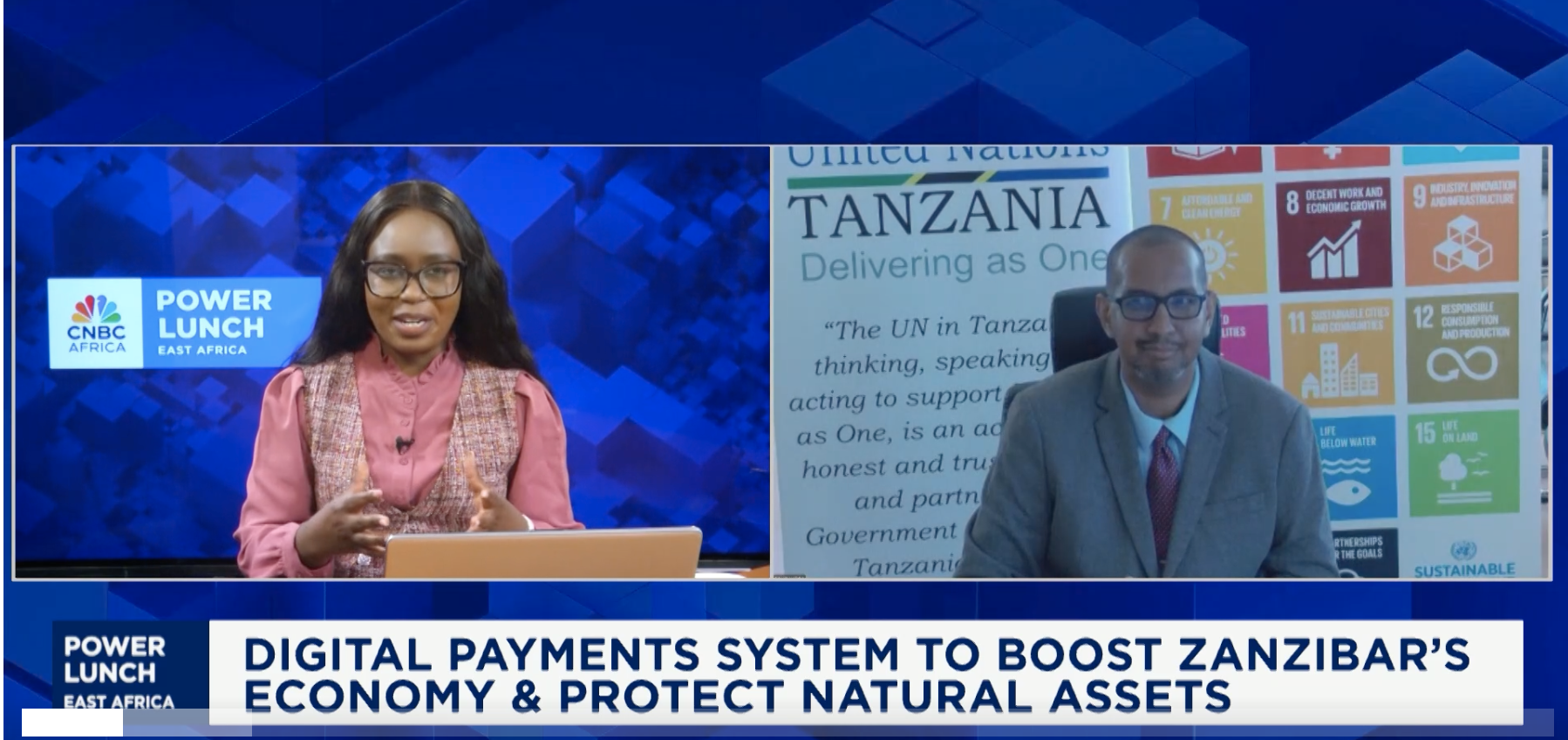
Tourists ‘willingness to pay’ higher fees as long as additional revenues finance biodiversity protections: BIOFIN study revealed in 2024
Zanzibar has raised tourist fees for its Marine Conservation Areas, previously the lowest among comparable destinations in the region, as part of efforts to strengthen protections for marine diversity.
The updated fees and a new digital fee-collection system are projected to nearly triple annual revenues and is part of a series of measures supported by UNDP’s Biodiversity Finance Initiative to catalyze financing for the island’s conservation efforts.
“Before the onset of the UNDP BIOFIN program, Zanzibar was collecting about $1.3 million per year from marine park fees - we’re now projecting around $4.3 million annually,” Dr. Aboud Jumbe, Principal Secretary, Ministry of Tourism and Heritage, Zanzibar, told CNBC in an interview. “It’s a significant leap that will enhance both revenue efficiency and transparency,” he said.

Tourism is central to Zanzibar’s economy, accounting for nearly a third of the island’s GDP and supporting nearly 100,000 jobs.
Coral reefs, seagrass beds, and mangrove forests are ecosystems that are essential for both biodiversity and the sustainability of Zanzibar’s ocean-based tourism sector, which generates 70% of its foreign currency earnings.
With Marine Conservation Areas spanning over 2,000 square kilometers, the additional revenue will help address critical challenges, including insufficient funding, a lack of boats and equipment, and a shortage of trained personnel.
“Compared to other popular ocean-based destinations in the region, Zanzibar’s entry fee (US$3) was by far the cheapest,” said Dr. Makame Omar Makame, Director of the Department of Conservation Areas, Zanzibar. “Updating the fees allows us to protect these ecosystems better while maintaining Zanzibar’s competitiveness as a world-class destination.”
The revenues generated by these new measures will be distributed to three priority areas:
- 45% for conservation efforts such as patrol activities and artificial coral reef planting
- 30% to support adjacent local communities and fisheries committees, including the purchase of environmentally friendly fishing gear.
- 25% allocated to the national treasury.
The adjustment comes in the face of rising operational and management costs required to protect these extensive ocean areas and ensure their ecological and economic sustainability.
Tour operators and hoteliers — the groups most affected by the change — were given six months’ advance notice before the new fees took effect, allowing businesses to prepare.
BIOFIN’s Role in Driving Change
UNDP’s Biodiversity Finance Initiative (BIOFIN) played a pivotal role throughout the process — from initiating the idea to securing final approval.
BIOFIN conducted a Willingness to Pay Survey in February 2024 to analyze the potential effects of fee increases on tourism and conservation financing. The results showed that foreign tourists were comfortable with an additional fee of USD 8–14, as long as the revenue directly supported biodiversity conservation.
Using these insights, BIOFIN helped facilitate stakeholder consultations and presented findings to the Ministry of Blue Economy and Fisheries, ensuring that the new fees struck a careful balance between generating revenue and maintaining Zanzibar’s competitiveness as a tourist destination.
“This decision shows how evidence-based biodiversity finance solutions can generate sustainable funding for conservation while supporting communities and businesses,” said Herve Barois, Regional Technical Advisor at BIOFIN. This finance solution in Zanzibar was developed with financial support from the UK, Germany and Norway.
The previous fee system was based on an outdated model that did not account for modern attractions such as kite surfing, sunset cruises, and concessions for physical facilities within Marine Conservation Areas.
The revised structure now reflects the true value of these experiences while ensuring that conservation can keep pace with the growing demands of tourism.
By modernizing its fee structure and reinvesting in marine ecosystems, Zanzibar is taking a bold step toward sustainable ocean management.
About UNDP-BIOFIN
In more than 40 countries, BIOFIN has catalyzed over US$1.6bn in revenues for nature, since 2018, harnessing finance solutions that run from the humble crowdfunding to complex fiscal instruments such as Green Bonds. Now, with support from the Global Environment Facility (GEF), BIOFIN is supporting an additional 91 countries to develop Biodiversity Finance Plans similar to the one in Zanzibar.
Categories
Archives
- février 2026 (1)
- janvier 2026 (3)
- décembre 2025 (2)
- novembre 2025 (5)
- octobre 2025 (5)
- septembre 2025 (2)
- août 2025 (10)
- juillet 2025 (9)
- juin 2025 (5)
- mai 2025 (8)